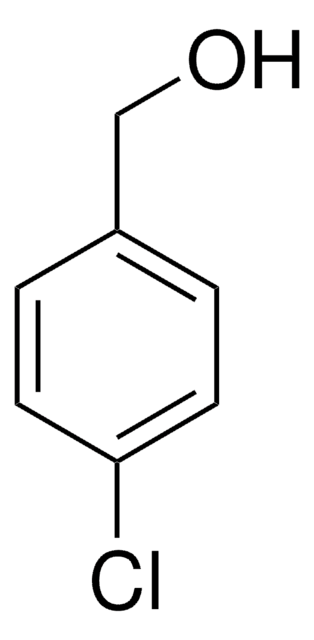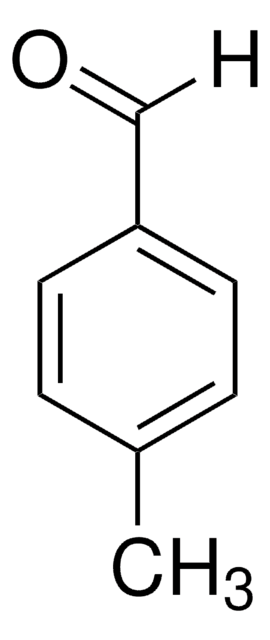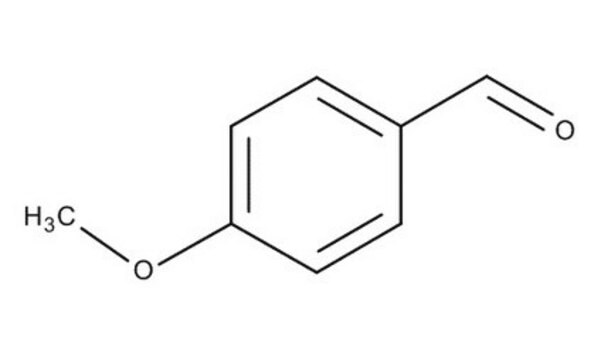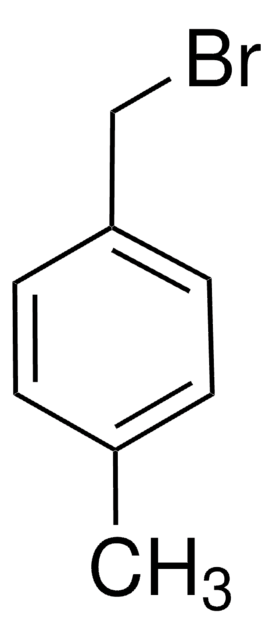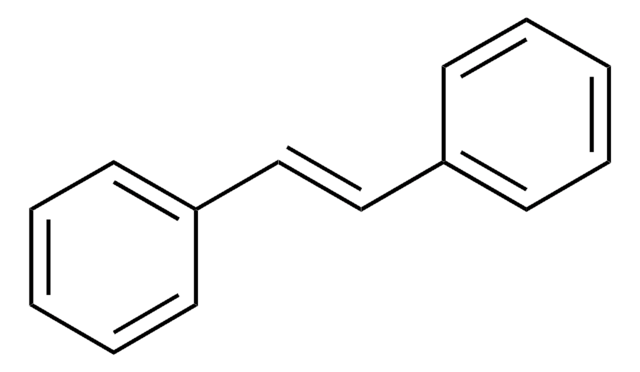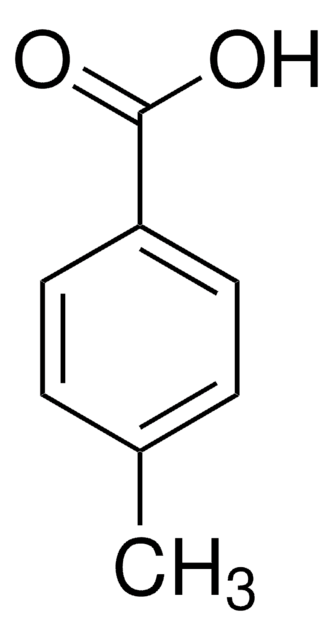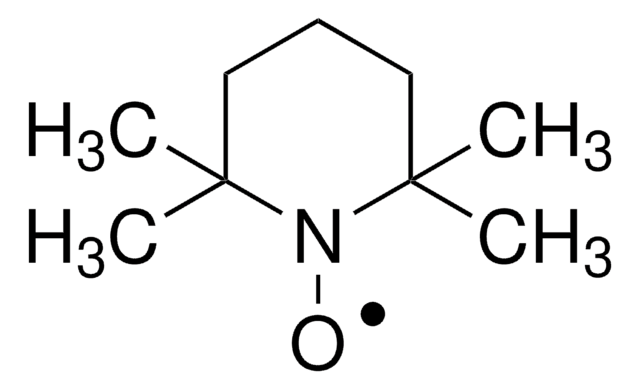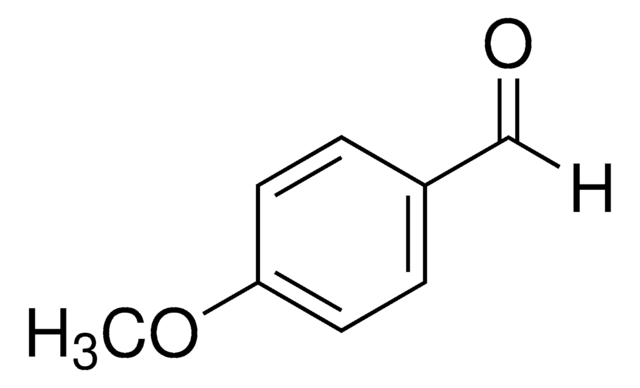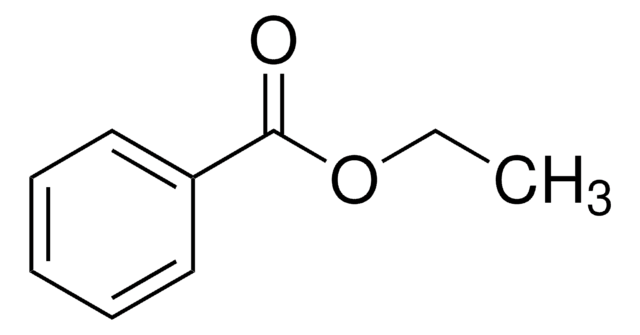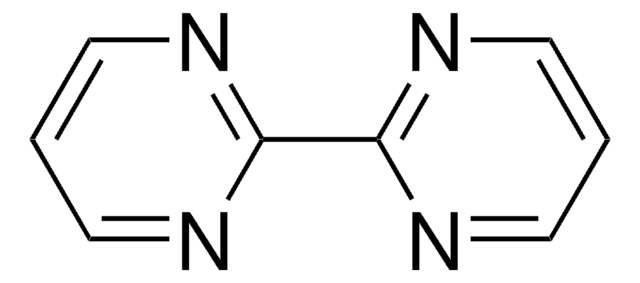127809
4-Methylbenzyl alcohol
98%
Sinónimos:
(4-Methylphenyl)methanol, (4-Tolyl)methanol, 4-Methylbenzenemethanol, p-Methylbenzyl alcohol, p-Tolualcohol, p-Tolylcarbinol, p-Tolylmethanol
About This Item
Productos recomendados
Quality Level
assay
98%
bp
217 °C (lit.)
mp
59-61 °C (lit.)
functional group
hydroxyl
SMILES string
Cc1ccc(CO)cc1
InChI
1S/C8H10O/c1-7-2-4-8(6-9)5-3-7/h2-5,9H,6H2,1H3
InChI key
KMTDMTZBNYGUNX-UHFFFAOYSA-N
General description
Application
signalword
Warning
hcodes
Hazard Classifications
Eye Irrit. 2
Storage Class
11 - Combustible Solids
wgk_germany
WGK 2
flash_point_f
Not applicable
flash_point_c
Not applicable
ppe
dust mask type N95 (US), Eyeshields, Faceshields, Gloves, type P3 (EN 143) respirator cartridges
Elija entre una de las versiones más recientes:
¿Ya tiene este producto?
Encuentre la documentación para los productos que ha comprado recientemente en la Biblioteca de documentos.
Los clientes también vieron
Nuestro equipo de científicos tiene experiencia en todas las áreas de investigación: Ciencias de la vida, Ciencia de los materiales, Síntesis química, Cromatografía, Analítica y muchas otras.
Póngase en contacto con el Servicio técnico
